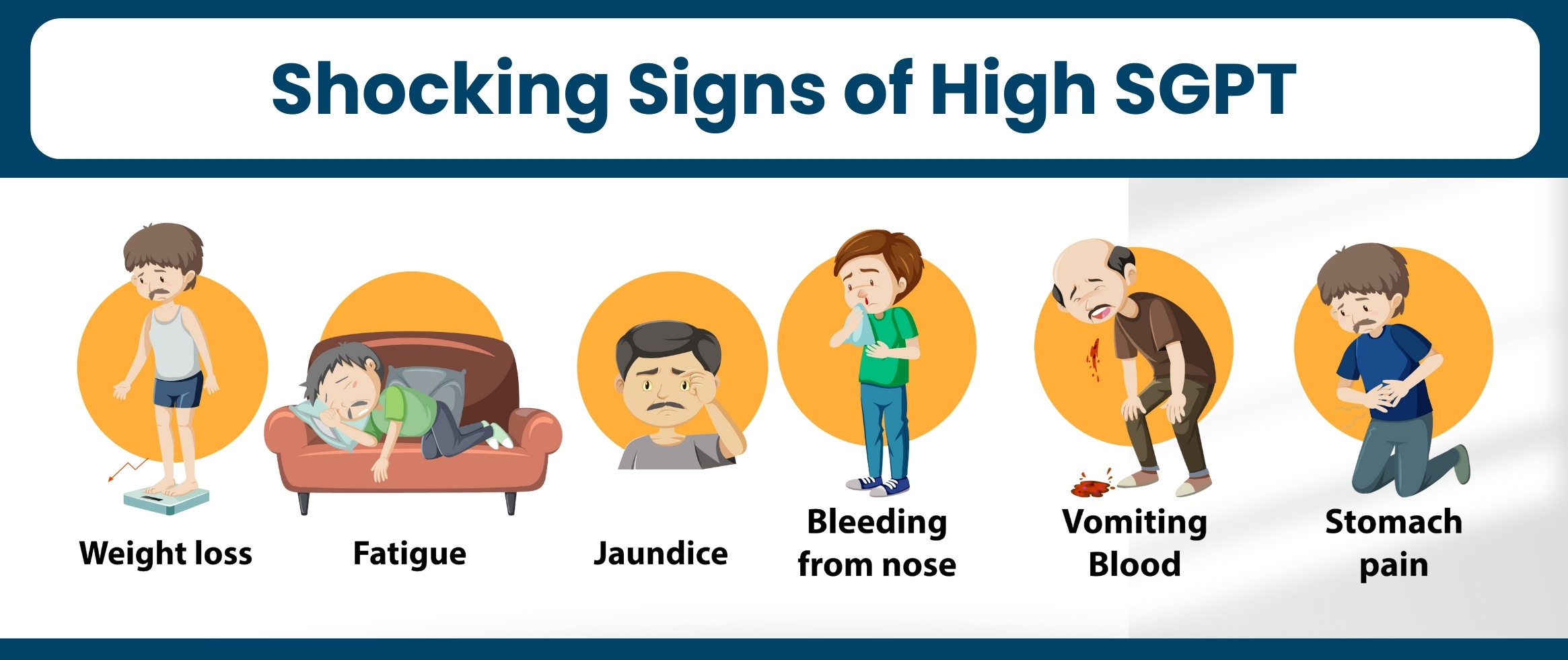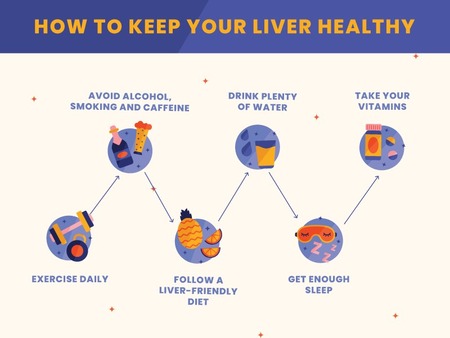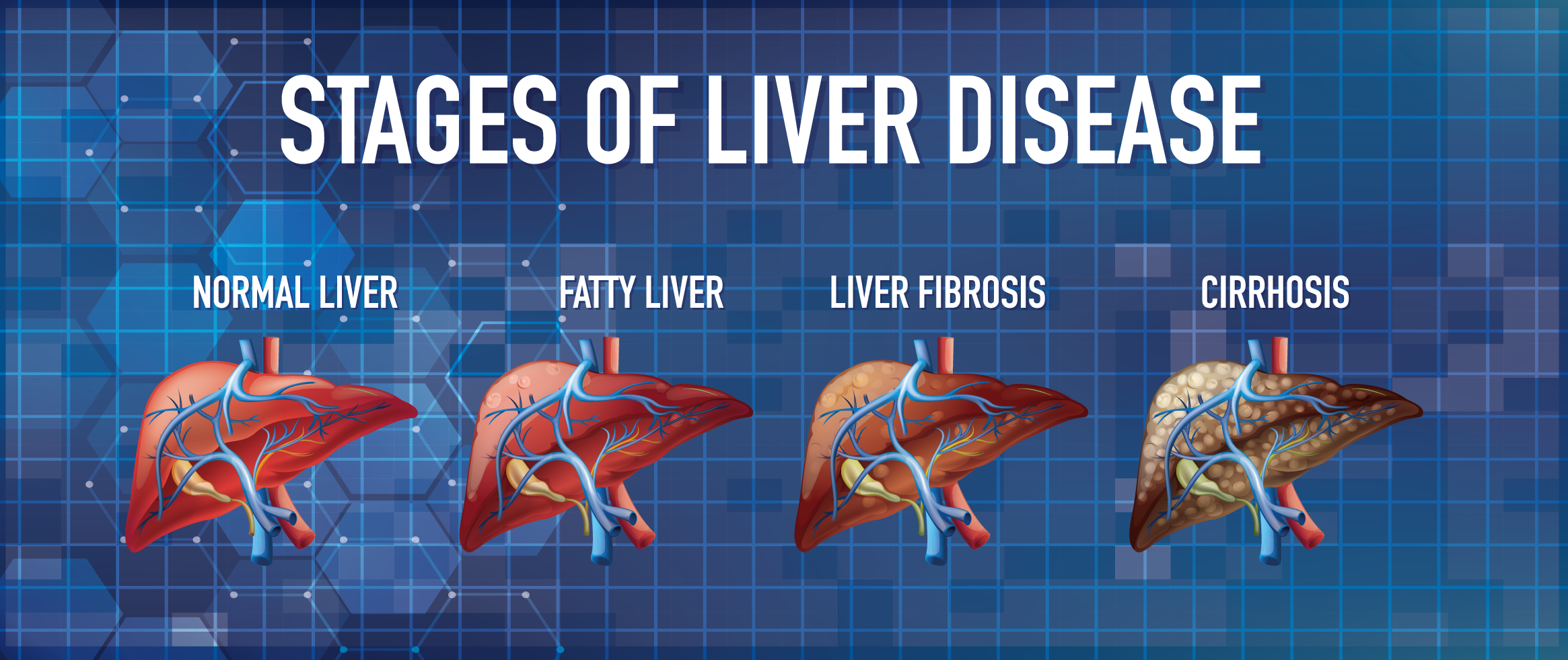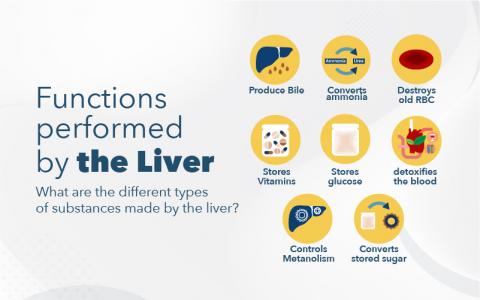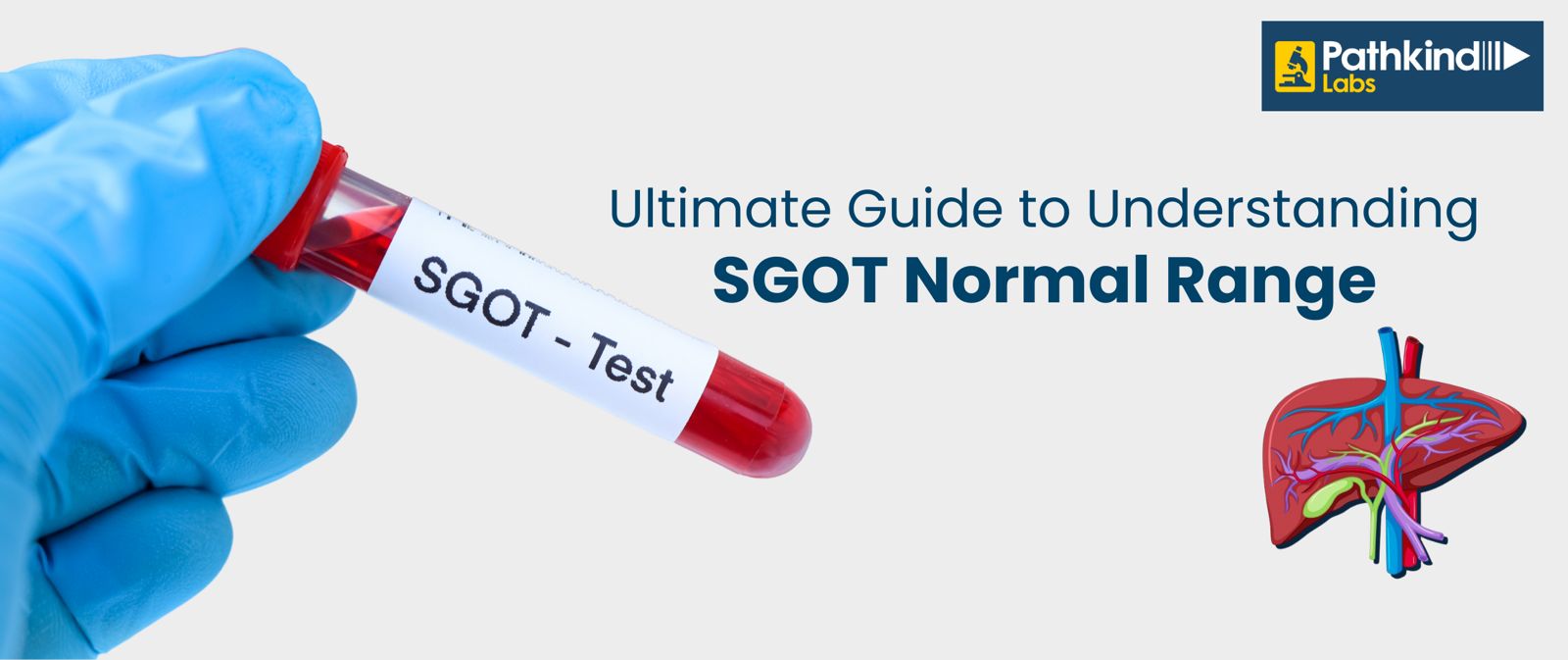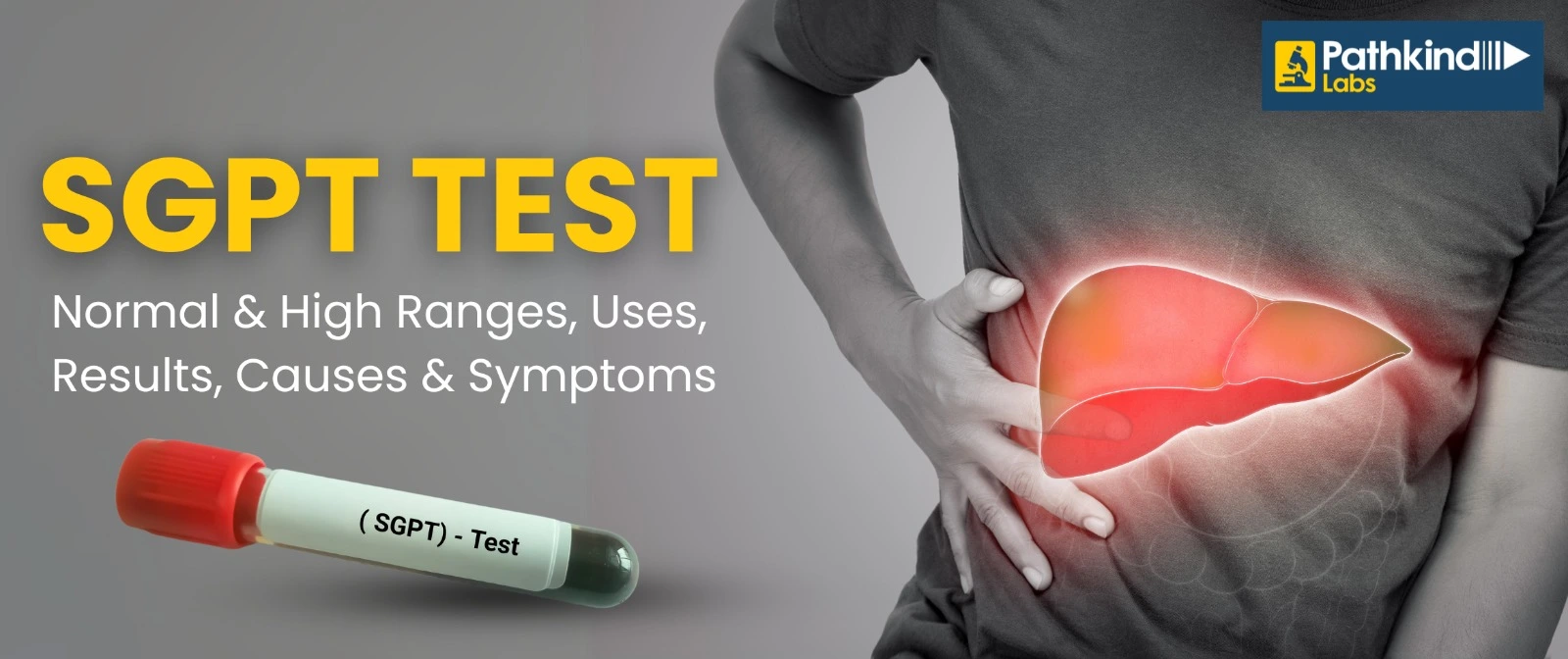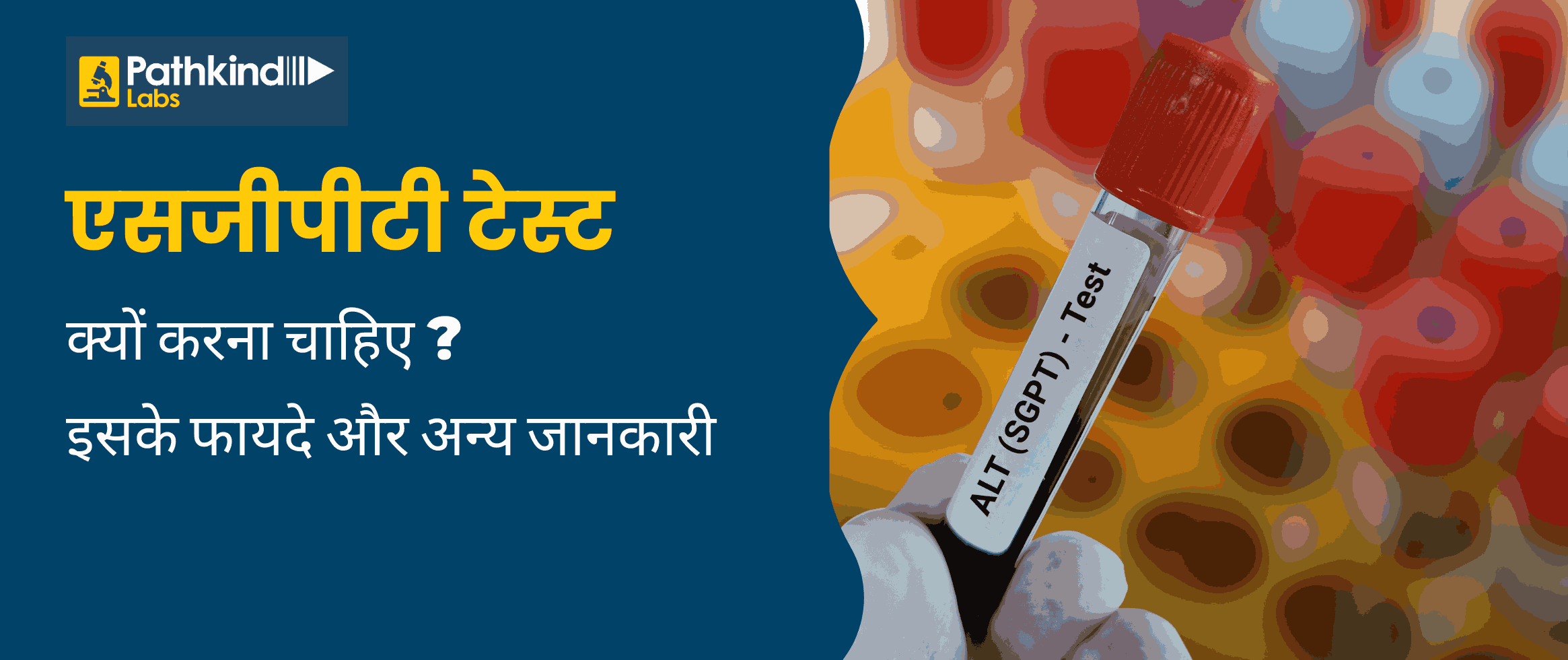SGPT / ALT

Gender for
Male, Female
No special preparation required

Sample Type
Serum
Test Overview
SGPT(ALT) or Alanine transaminase test is carried out to know the presence of an enzyme in the blood. Liver cells produce an enzyme named Alanine transaminase, responsible for breaking down the protein in our body. The protein in the human body needs to be converted into energy. With the help of the ATL/SGPT enzyme, protein is converted into energy in the human body. Healthy liver cells contain the most amount of SGPT in our body. For the same reason, SGPT(ATL) test is conducted to know the presence of the enzyme in healthy liver cells.

 NABL approved
NABL approved Labs
 Most Trusted by
Most Trusted by Doctors
 Accuracy &
Accuracy & timely reporting
 Widest Range
Widest Range of Tests
Test Details
Frequently asked questions
SGPT (ALT) test measures the amount of alanine transaminase in the liver. Alanine transaminase (ALT) is an enzyme found in the liver and a few other organs. It is stored in the liver cells and is responsible for breaking down protein into energy. ALT levels in the blood are indicated by an SGPT (ALT) test, also known as the serum SGPT test.
Anyone suffering from liver disease can opt for an SGPT (ALT) test. An SGPT test is an indication of the healthiness of the liver. If the SGPT levels are high in the blood, it is an indication of any liver-related disease. Doctors also advise an SGPT test to know the effectiveness of ongoing treatment. SGPT test can help people to be aware of their liver functions.
Symptoms of any liver-related diseases can call for an SGPT test. Doctors can also ask alcoholics to take an SGPT test and measure the effectiveness of the liver. Some symptoms that call for an SGPT test are as follows:
- Yellowing of the eyes/skin (jaundice symptoms)
- Abdomen pain
- dark urine
- Nausea
- Vomiting
- Diabetic symptoms
- Hepatitis symptoms
The SGPT test will indicate the levels of ALT in the blood. The ALT levels in the SGPT test result can be high or normal. Usually, the ALT levels in the blood are low for a normal person. The normal range for ALT in men/women is 7 – 40 U/L (Units per litre of blood). Higher ALT levels are an indication of any liver-related disease.
An average person should be aware of bodily functions at frequent intervals. In general, an SGPT test should be taken once a year to know the liver functions. People suffering from liver-related diseases, diabetes, and hepatitis might have to take an SGPT test every two or three months. Doctors can also conduct SGPT tests at frequent intervals to measure the effectiveness of ongoing treatment.
Since only a blood sample is required for an SGPT test, home collection services are available. However, home collection for an SGPT test might be expensive for many people.
















